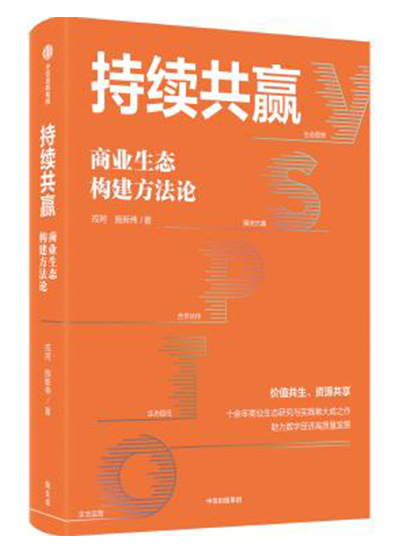Building favorable business ecosystems

Sustained Win-Win Results—The Methodology of Constructing Business Ecosystems
The study of business ecosystems can be characterized as a typical “theoretical jungle.” Since James Moore proposed this concept in 1993, many scholars have devoted great enthusiasm towards it, and have approached it from various perspectives—constructing, validating, revising, questioning, deepening, or even overturning ideas. Throughout this process, various analytical frameworks have emerged to explore the core concept and gain a deeper understanding of its underlying mechanisms.
Rong Ke, director and professor from the Institute of Economics at Tsinghua University, led a team to systematically review and analyze the academic history of business ecosystems. They identified latent patterns within the vast body of research from different schools of thought, and based on this, developed a unique 6C theoretical analysis framework. This framework deconstructs business ecosystems from six dimensions: context, cooperation, construct, configuration, capability, and change. This pioneering framework has quickly gained widespread recognition both domestically and internationally and has been applied in related research endeavors.
Building on the established 6C business ecosystem theory framework, Rong and his team have developed the Vision-Solution-Partners-Trust-Operation (VSPTO) model through long-term observation and tracking of representative domestic and international companies, as well as in-depth interactions with industry experts. This has led to the creation of the Nurturing Ecosystem Methodology (NEM), a five-step process which includes determining the foundation for ecosystem construction, identifying the lifecycle stage of the industry, making phased VSPTO ecosystem cultivation decisions, selecting from among the four major business ecosystem paradigms, and expanding the ecosystem into new industries or regions.
In order to better illustrate how the NEM and the VSPTO approaches can be put into practical application, Sustained Win-Win Results—The Methodology of Constructing Business Ecosystems provides detailed case studies of four globally representative companies: ARM (a semiconductor design and software company, the world’s leading semiconductor IP supplier), Intel (an integrated equipment manufacturer and a semiconductor industry leader), MediaTek (a world-renowned IC design company), and Huawei (an ICT infrastructure and smart terminal supplier). In specific case analysis, by demonstrating the application steps of the NEM and the VSPTO methods, the book vividly showcases the evolution of the business ecosystems centered around these companies. It highlights both the autonomous coupling of technological and market logic as well as the deep integration of governance logic. Rong extends his focus to the governance practices of strategic industries related to national security and development, and conducts exploratory research on the application of VSPTO methods in sectors such as computing, artificial intelligence, industrial internet, and national digital ecosystem construction, offering readers deep insights into the application of the NEM and the VSPTO methods at the industry level.
Chen Qiang is a tenure-track distinguished professor from the School of Economics and Management at Tongji University.
Edited by YANG LANLAN

 PRINT
PRINT CLOSE
CLOSE